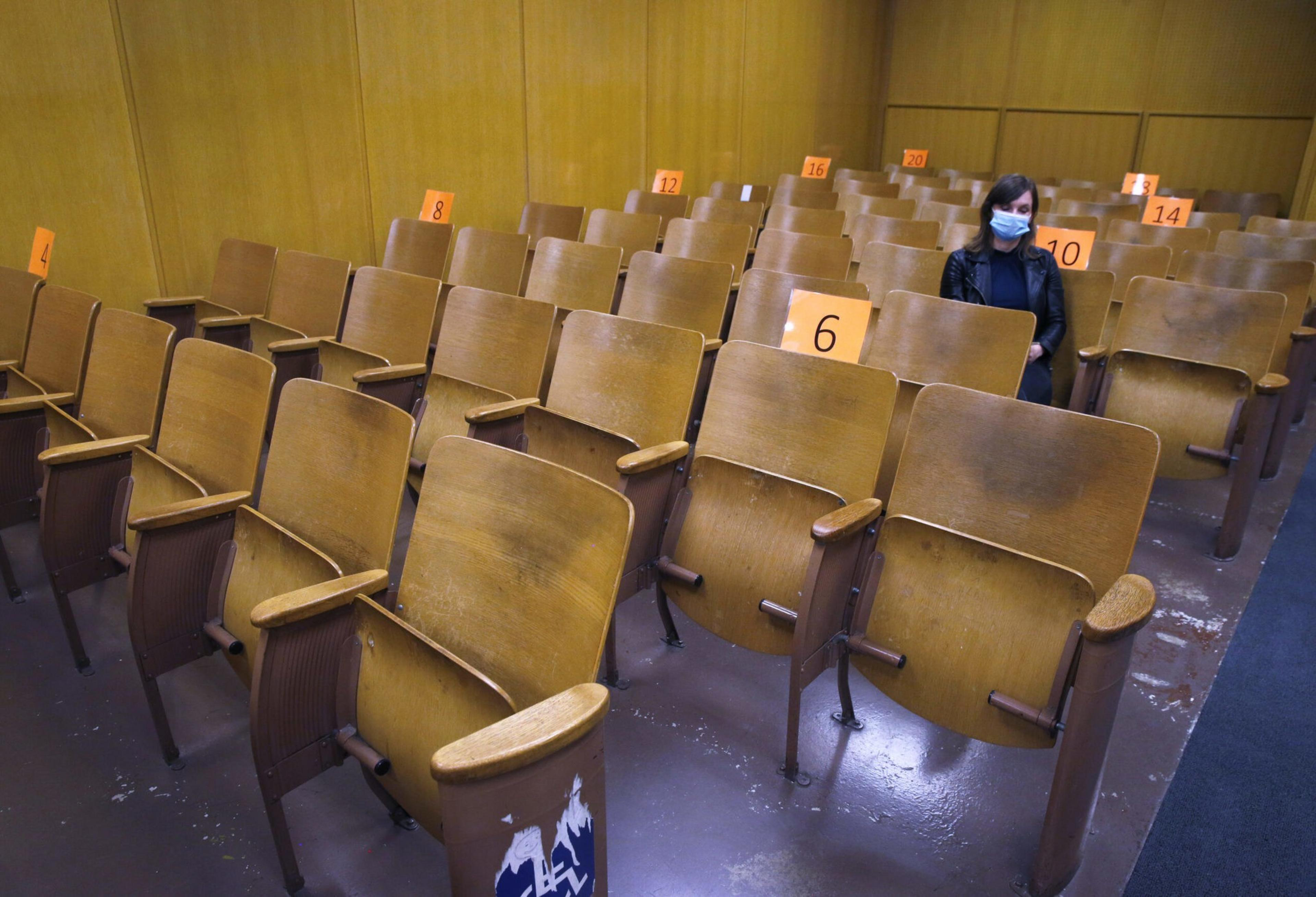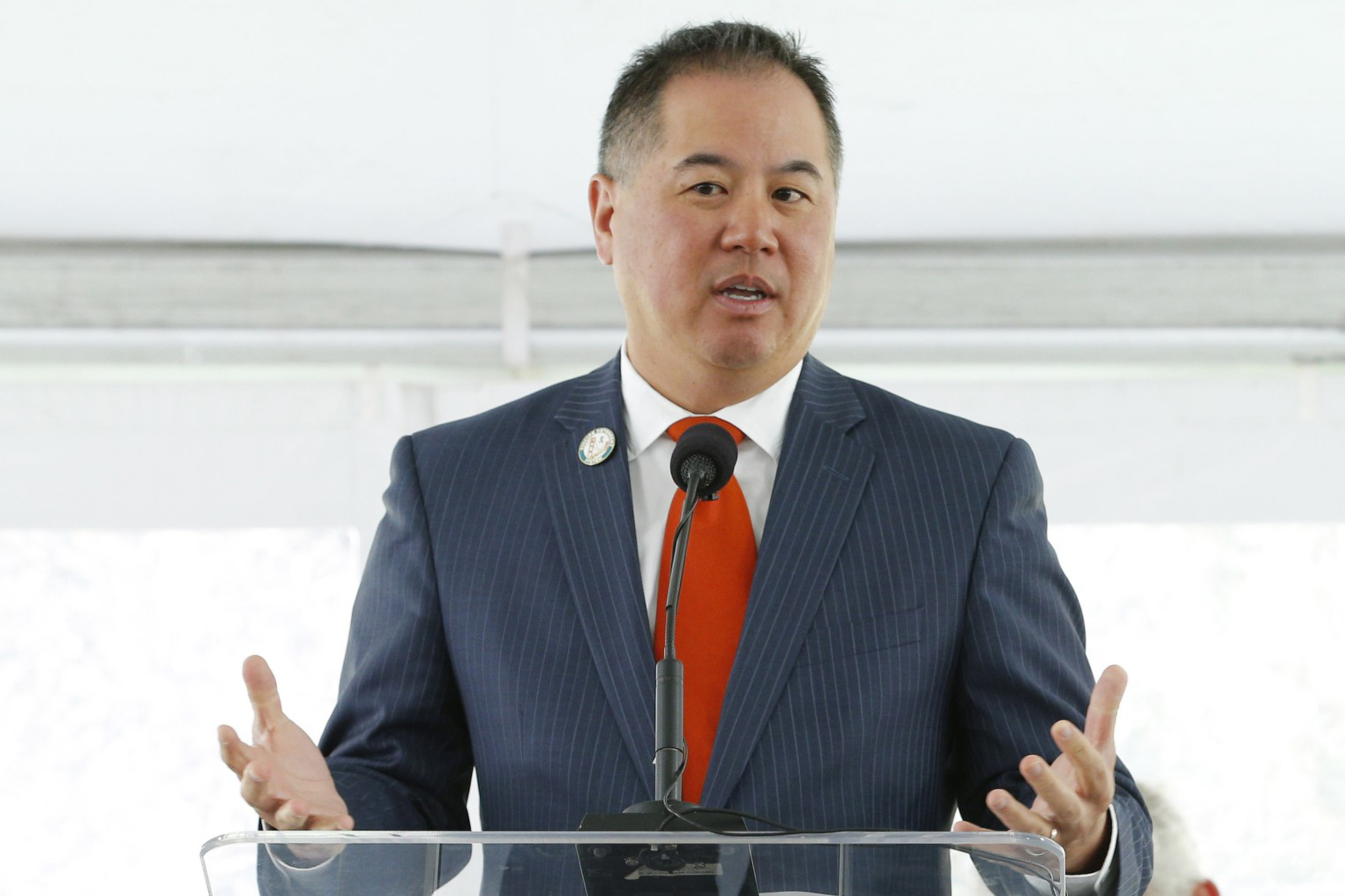A newly proposed state law aims to prevent people of color from facing all-white juries by increasing the compensation low-income jurors receive.
Jurors in California Superior Courts are currently paid just $15 a day, less than a single hour of San Francisco’s minimum wage. The bill, introduced yesterday (opens in new tab) by Assemblymember Phil Ting, would up that pay to $100 each day for people with low incomes. That will make it possible for far more working-class people, who are disproportionately people of color, to serve on juries, Ting said.
“Nobody should not be allowed to serve on a jury because they don’t have enough money,” Ting said.
San Francisco District Attorney Brooke Jenkins, who voiced her support for the measure, said she consistently saw financial hardship prevent juror diversity when she worked as a trial lawyer in San Francisco.
“I saw time and time again that as jury pools would enter the courtroom for us to begin selection, most of the jurors of color, particularly our Black and Latino jurors, would apply for hardships,” Jenkins said. Many of those jurors would be excused by the judge, “leaving very few that looked like me to actually engage in the jury selection process,” Jenkins, who is Black and Latina, added.
State law requires employers to provide time off for jury duty, but they’re not obligated to pay their employees for days away from the workplace.

Alameda County Public Defender Brendon Woods said the proposed bill is monumental and has the potential to reshape the racial makeup of juries in California.
“Oakland does not have a shortage of Black people,” he said. “But we do have a shortage of Black people when it comes to those serving as jurors.”
Woods described a recent case representing a Black client in which, after the judge excused jurors for hardships, 60 people walked into the courtroom for jury selection. Not a single one of them was Black.
“That client was charged, prosecuted and convicted without having a single Black person decide his case,” Woods said. “It wasn’t that long ago when jurors in this country had to be white men who owned property. That’s not that law now, but in reality, not much has changed.”
If the bill passes, potential jurors for criminal cases whose employers don’t provide paid time off for jury service will qualify for the higher stipend, including self-employed and unemployed people. Any juror whose household income is less than 80% of their county’s median would receive the higher per diem. In San Francisco, anyone whose household income is $97,000 or less would fit into that category, according to U.S. Census data (opens in new tab).
The new law builds off a pilot program launched last year by San Francisco’s Financial Justice Program. About 80% of participants in the pilot, who received $100 per day for their jury service, said they couldn’t have served if it wasn’t for the higher pay provided by the program, according to the program’s preliminary findings (opens in new tab).
Over one-third of jurors in San Francisco Superior Court reported that jury service imposed financial hardship, a 2004 study (opens in new tab) prepared for the Judicial Council of California found.
Ting said it was going to be challenging to establish this new program in such a tough budget year—the state is facing a $22.5 billion budget shortfall that may require significant cuts. But he said this initiative would be worth funding.
“If we want our jury trials to work, we need to make sure that not just some Californians can participate, but that every single Californian […] has the opportunity to participate,” Ting said.
